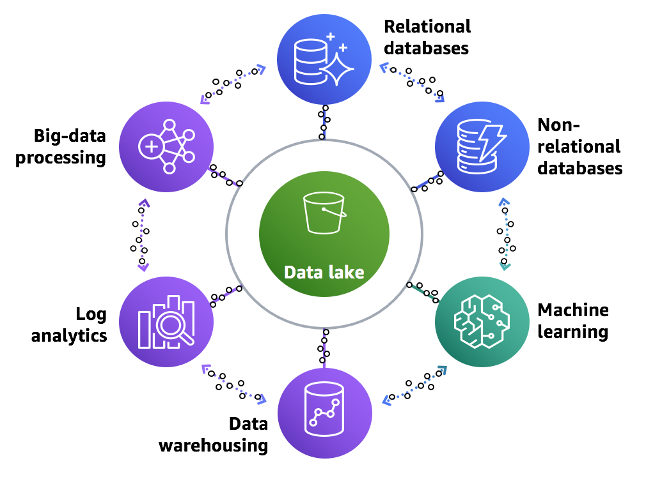
Traditional BI tools may struggle to find meaningful insights from the vast amounts of unorganized and disparate data within teams or web applicationsĭata Warehouses and Data Lakehouses: A Reality Checkĭata warehouses have long been used for storing and managing vast amounts of data in a structured format.


#Data lakehouse vs data lake professional
The data lakehouse is designed for data scientists and not the average business professional.During the ETL process, the data warehouse generally rejects some raw data that could be used for future analysis.With its structured query approach, it is limited in deep data analysis.Potential issues with compatibility or integration of existing systems, but solutions like Azure Data Factory are available.Data retention is a significant problem with the warehouse, as long-term storage of historical data costs more.The context of the data can be lost when it is transferred to the warehouse, making it difficult for business decision makers to accurately analyze the information.The data warehouse exists separately from operational systems, which results in more complex maintenance and deployment processes.Data warehouses usually require high setup and operational costs.Data Lakehouses: Relative Disadvantagesīelow, is a list of the downsides of using a data warehouse vs. When Walgreens migrated its system to Delta Lake, the company was able to improve its machine learning capabilities and perform with better accuracy by using visualizations to analyze its supply chain operations. One example of how a company has benefited from migrating to a data lakehouse is Walgreens. Lakehouses allow organizations to fulfill cloud infrastructure needs and serve businesses that require the agility of diverse application developmentĮxample of a Business Benefiting from Data Lakehouse.The data lakehouse is ideal for supply chain analytics because of its instant predictive capabilities and tools.The lakehouse supports both traditional BI as well as more advanced analytics platforms like AI and ML.In the lakehouse, storage cost is mitigated by providing storage for large volumes of new data in real-time.Data lakes can store large amounts of raw data in real time from diverse ML and IoT devices at one location.The various metadata storage options provide easy access for client applications.The data lakehouse allows storage of all types of raw or varied data in one place.Data lakes support both structured and raw data (unstructured) in native formats.The data lakehouse offers low-cost storage over traditional cloud solutions.Easier but powerful Data Management environment suitable for all business users.Data warehouses are ideal for all types of transactional data, which is used for queries and reporting purposes.Cloud relational databases provide scalable solutions for managing large amounts of data with ease.The data warehouse offers businesses the opportunity to centralize and analyze multi-source business data at one location.The data warehouse enables collaborative decision-making by gathering, storing, and analyzing data from multiple data sets in one central location.The key benefit of this approach is that it enables data scientists to quickly extract insights from raw data with advanced AI tools. The lakehouse has successfully blended characteristics of the data warehouse and the data lake to create a scalable and unrestricted solution. This approach involves ingesting structured data into a centralized repository, with a focus on warehouse integration and business intelligence reporting.Įnter the data lakehouse approach, which is vastly superior for deep-dive data analysis. Traditional data warehouses have long supported all types of business professionals in their data storage and analytics endeavors. The lakehouse offers a storage platform for both structured and unstructured data in one location while also accommodating BI, AI, and ML-driven analytics.Ī common example of such a solution is Databrick’s open-source project, Delta Lake, which provides options for storage architecture that meet your organization’s needs. Data lakehouses try to address the limitations of both the data warehouse and the data lake. Data lakehouses meet the needs of organizations that require “more flexibility in their data platforms,” which is absent in traditional architectures of a data warehouse.


 0 kommentar(er)
0 kommentar(er)
